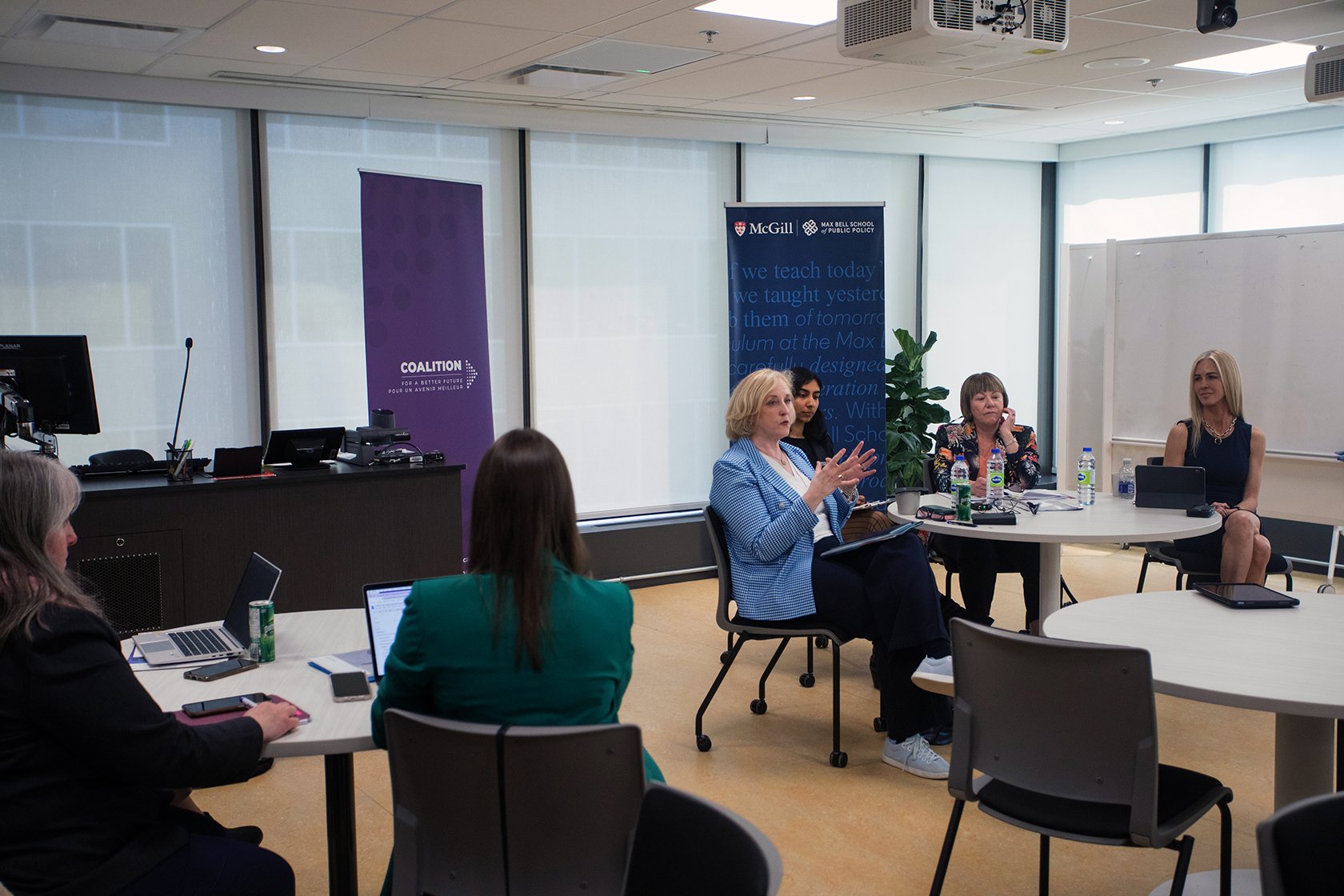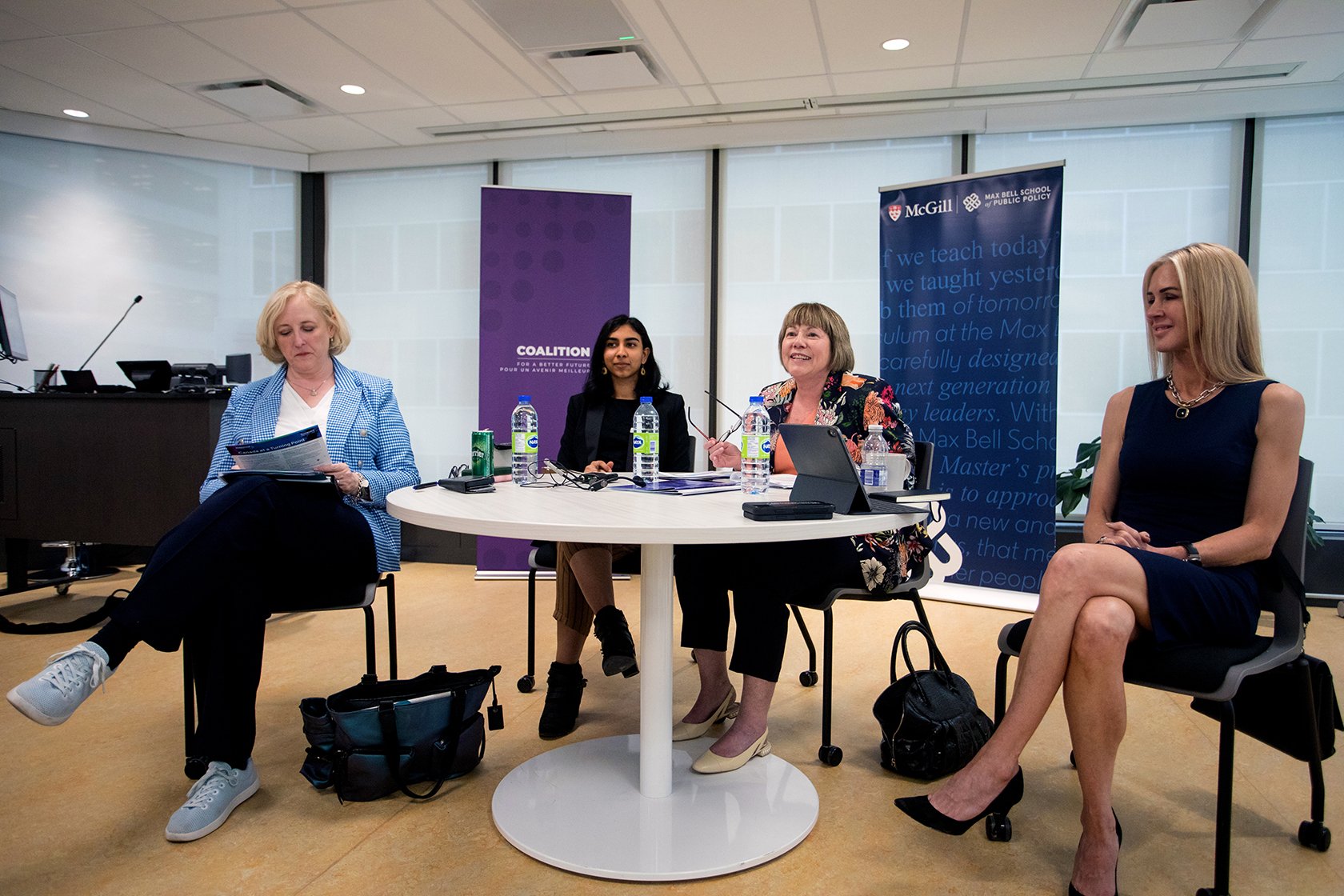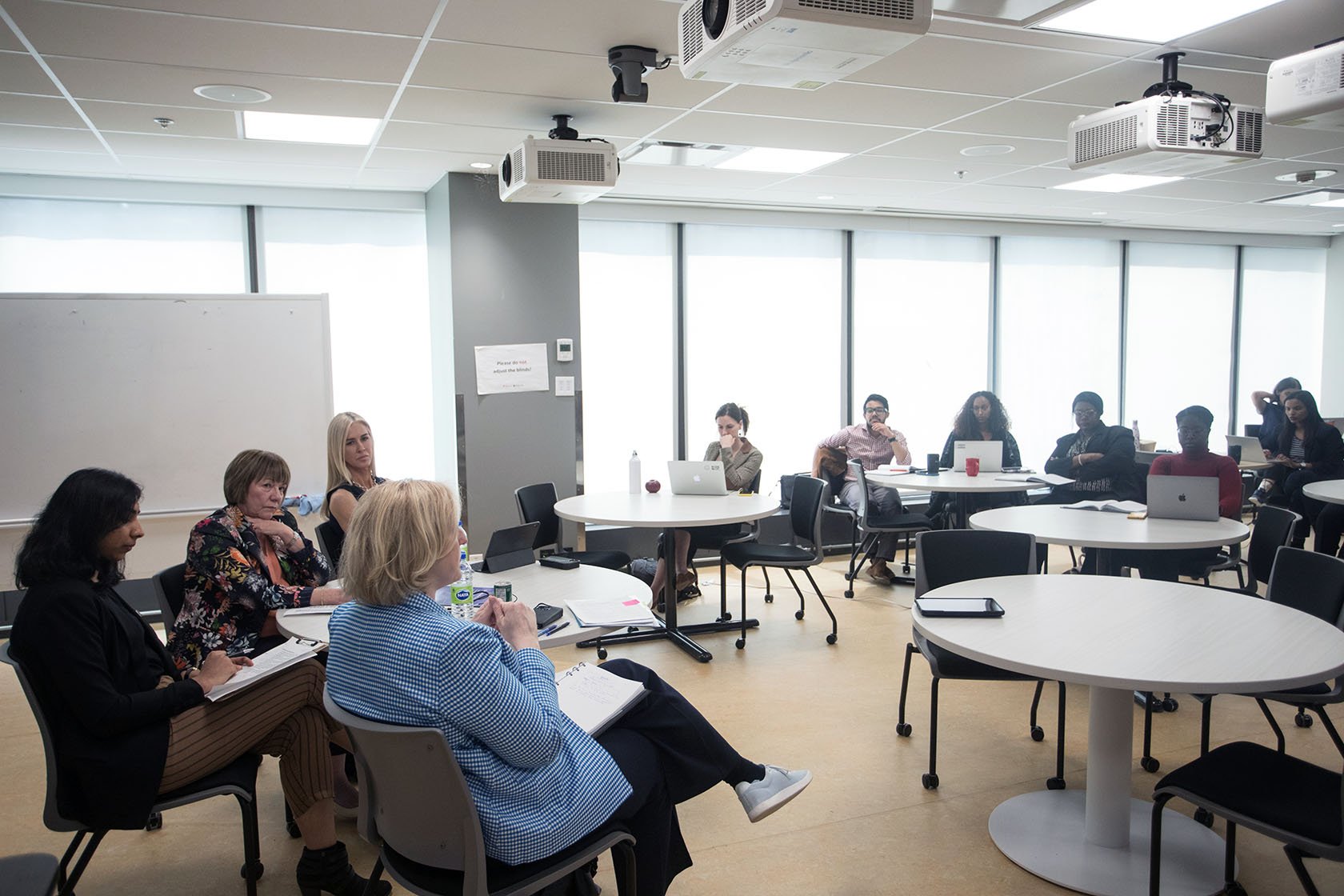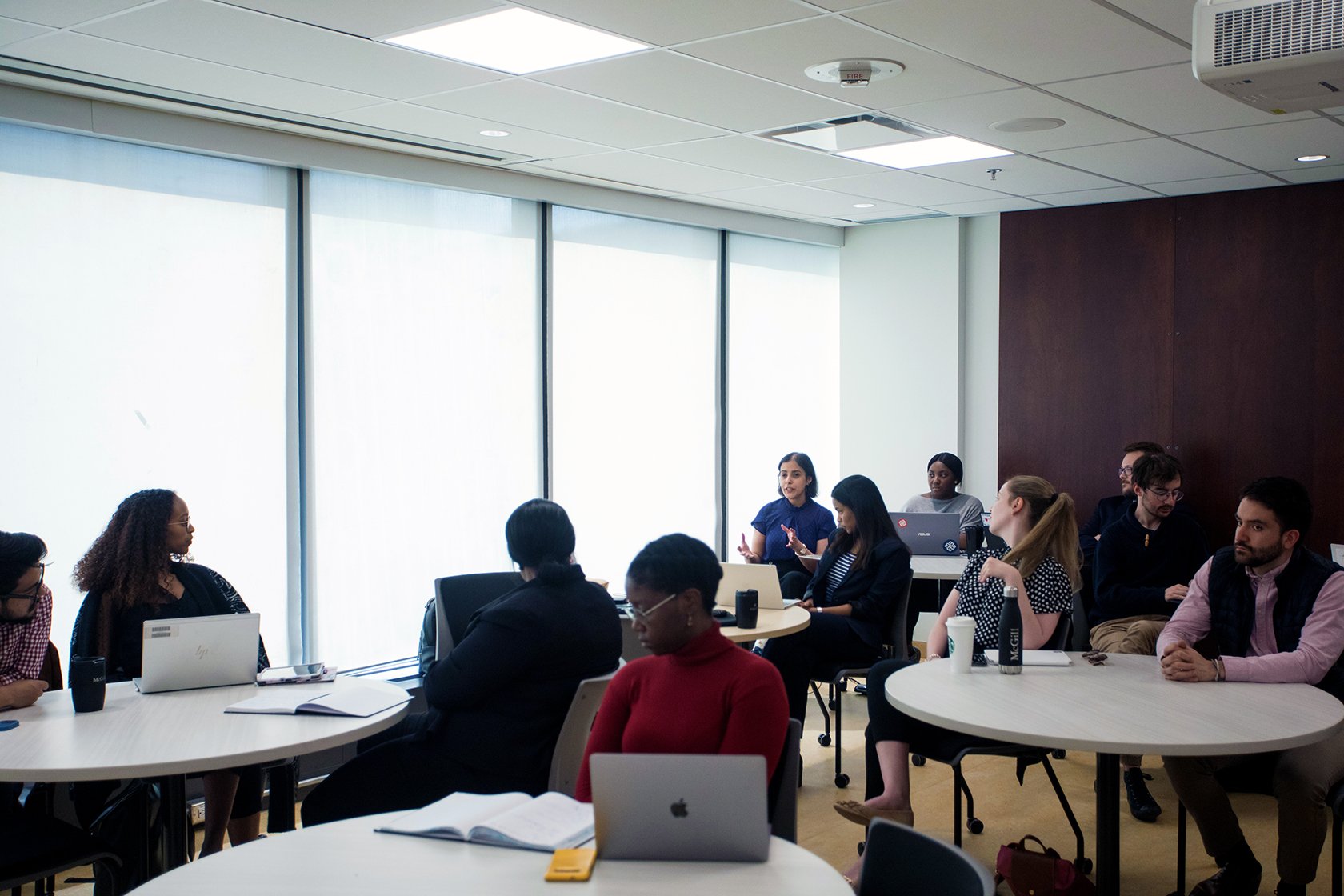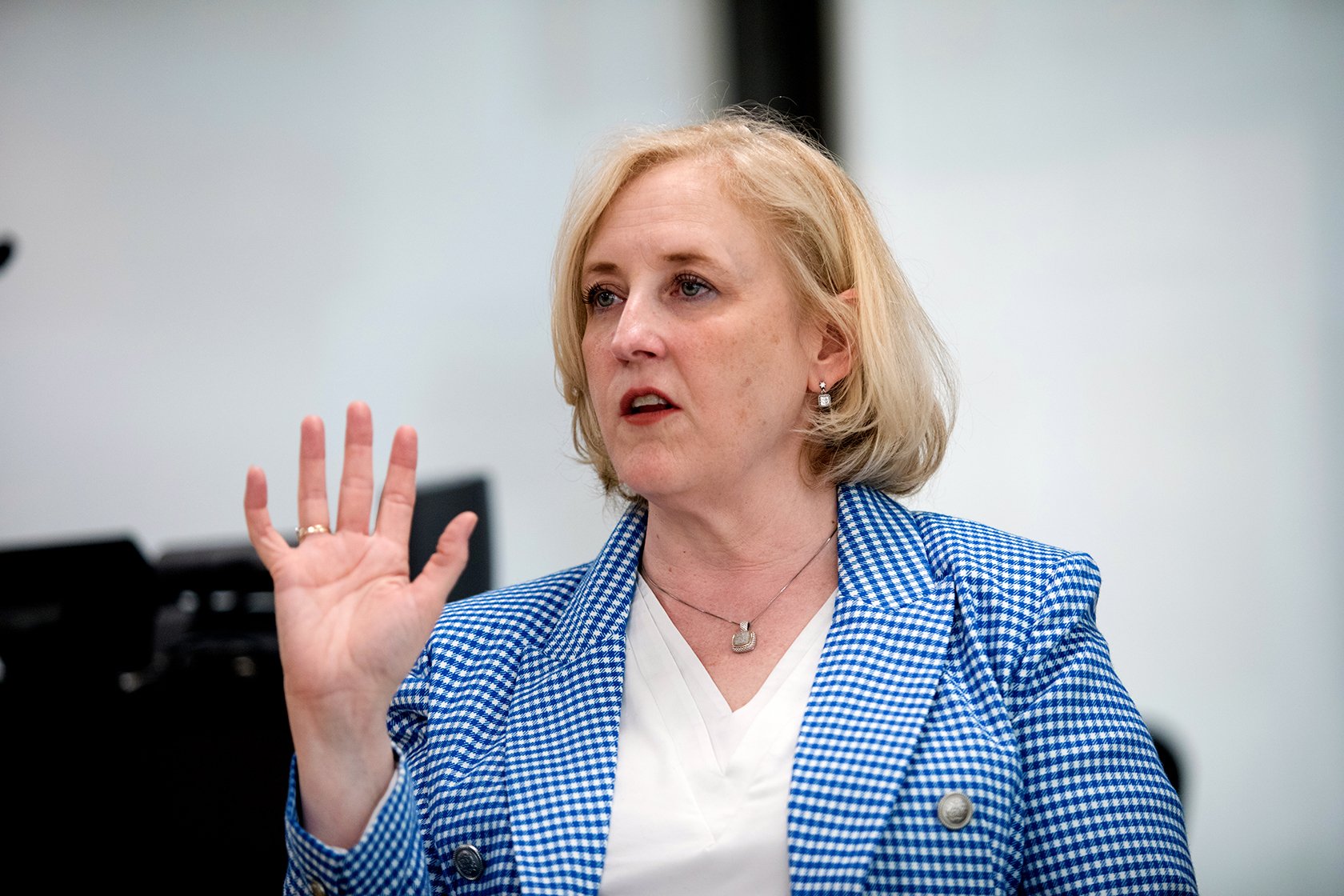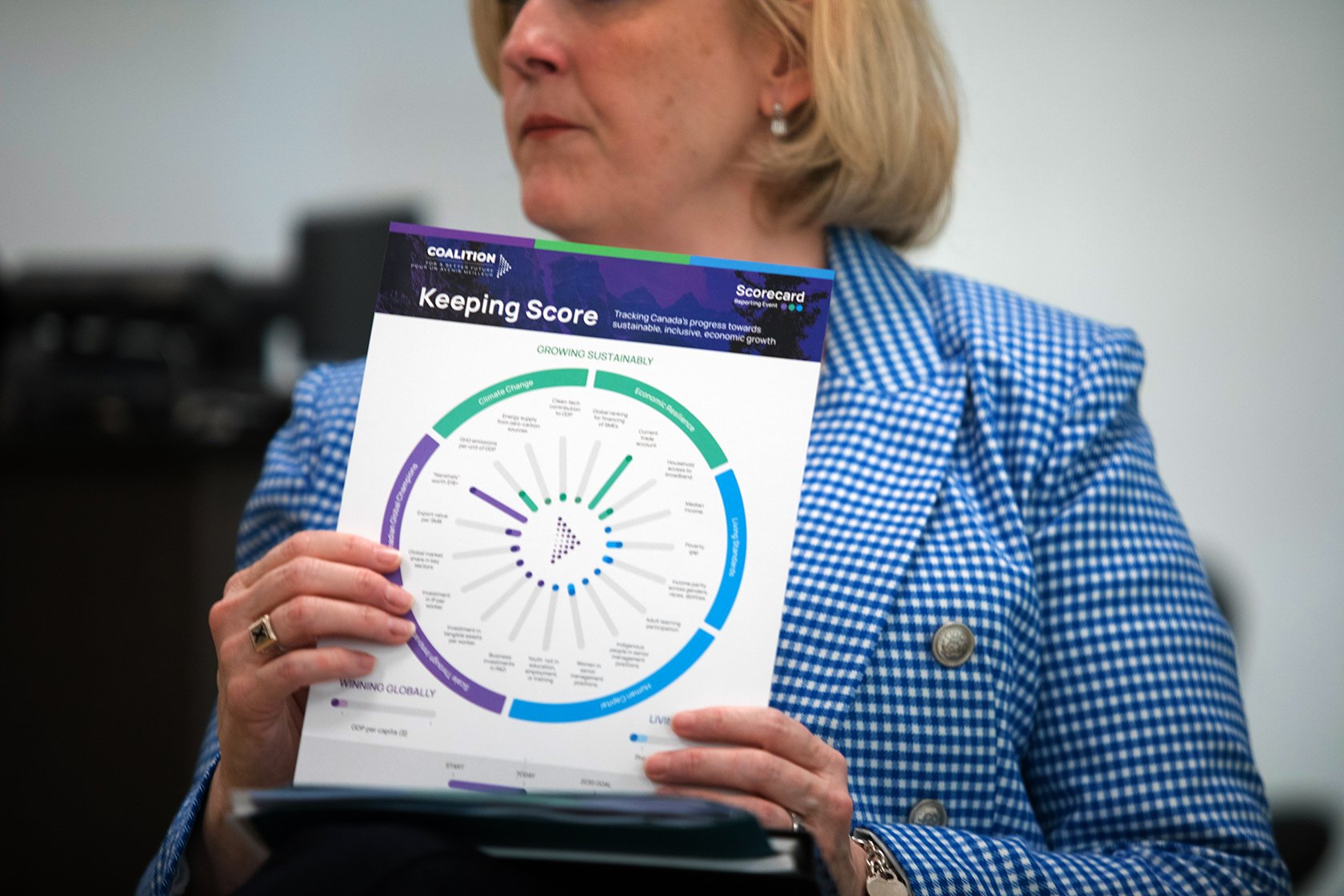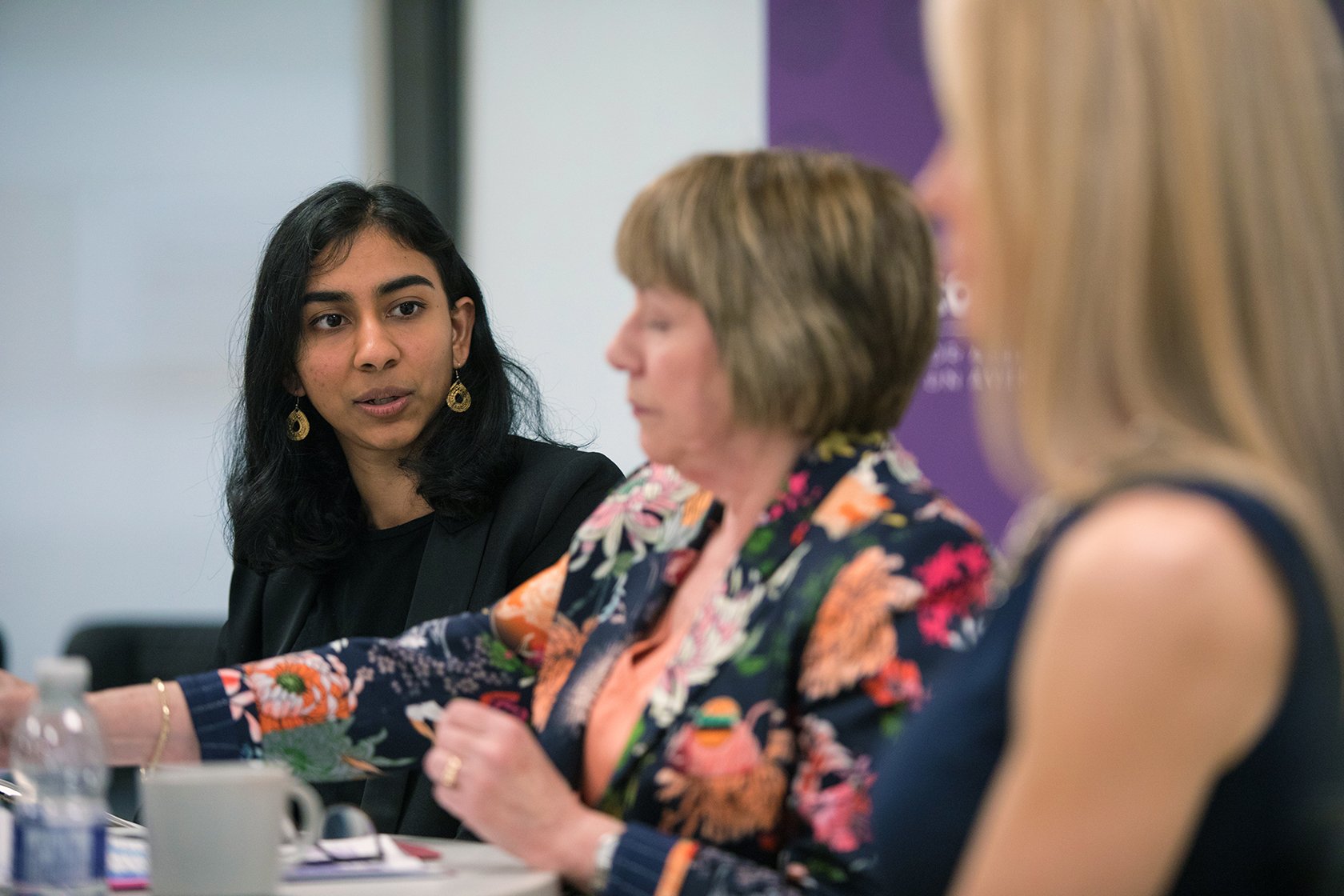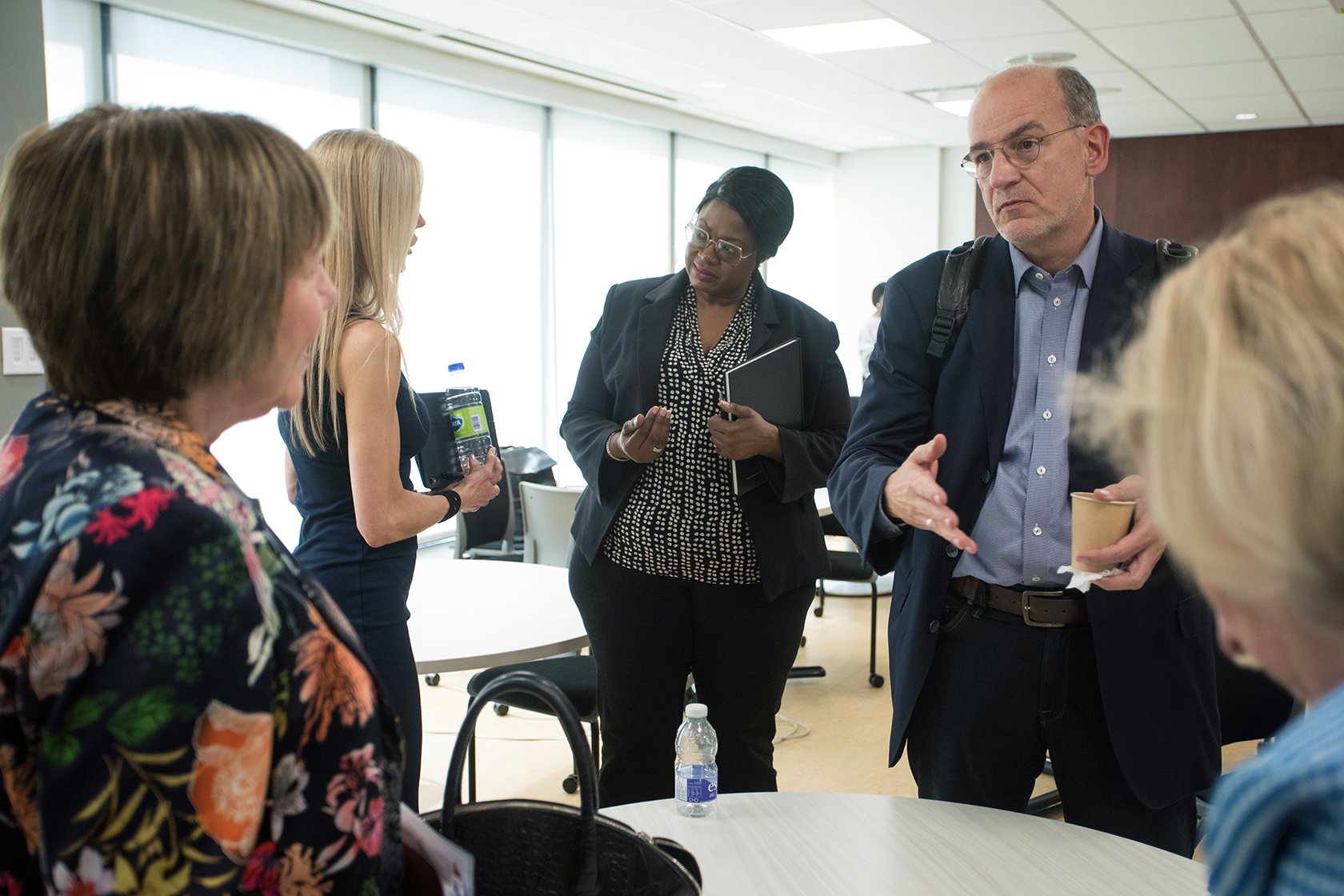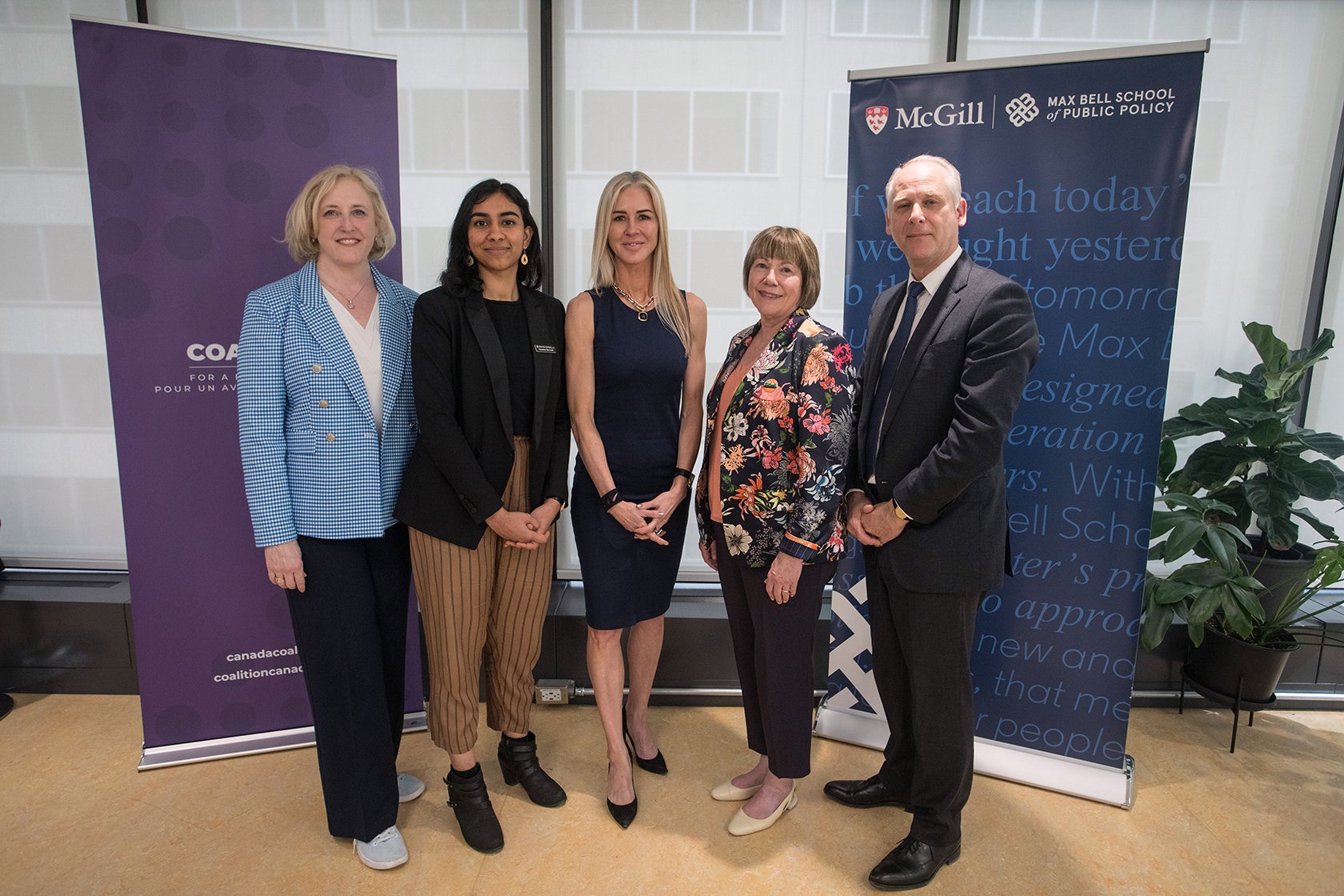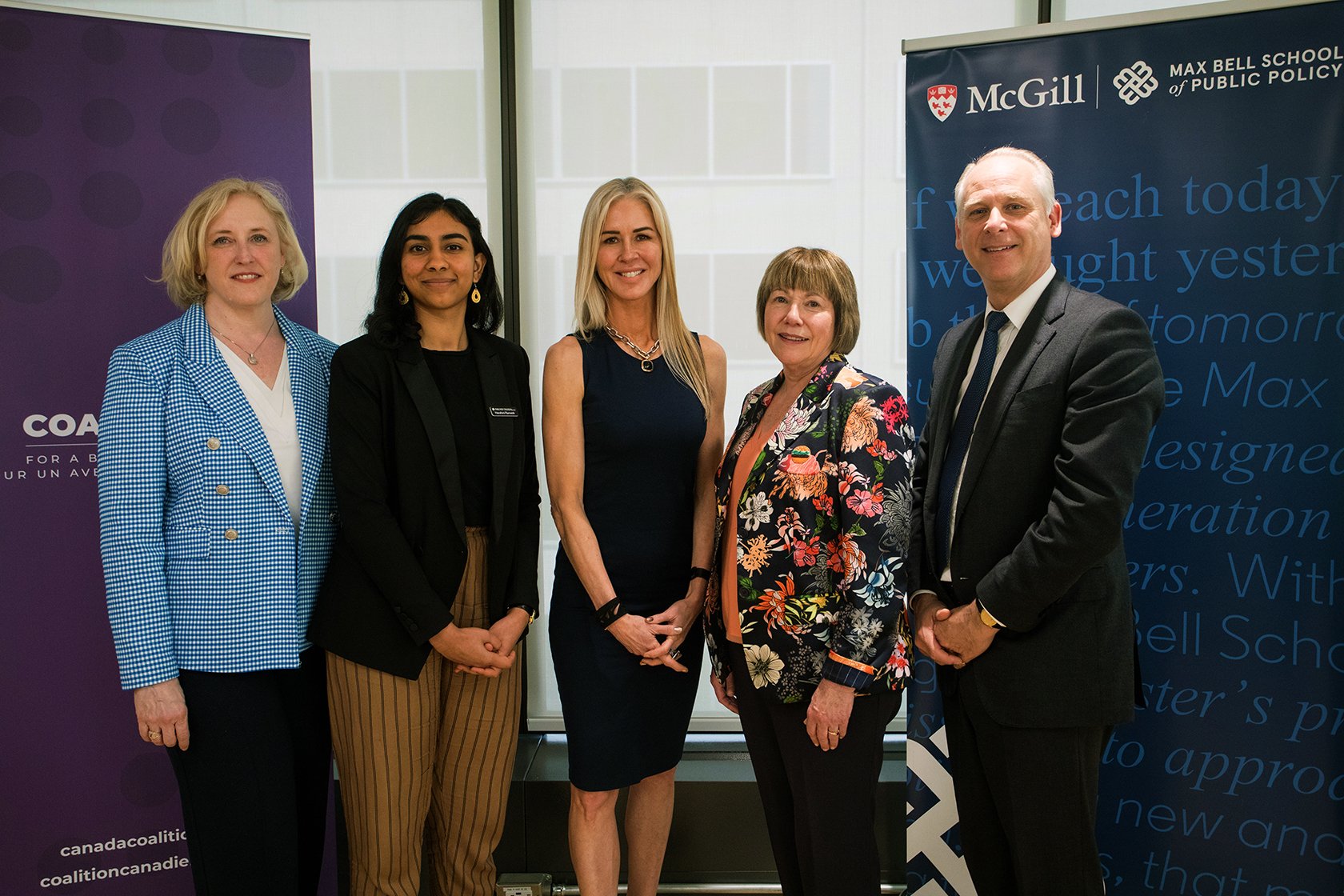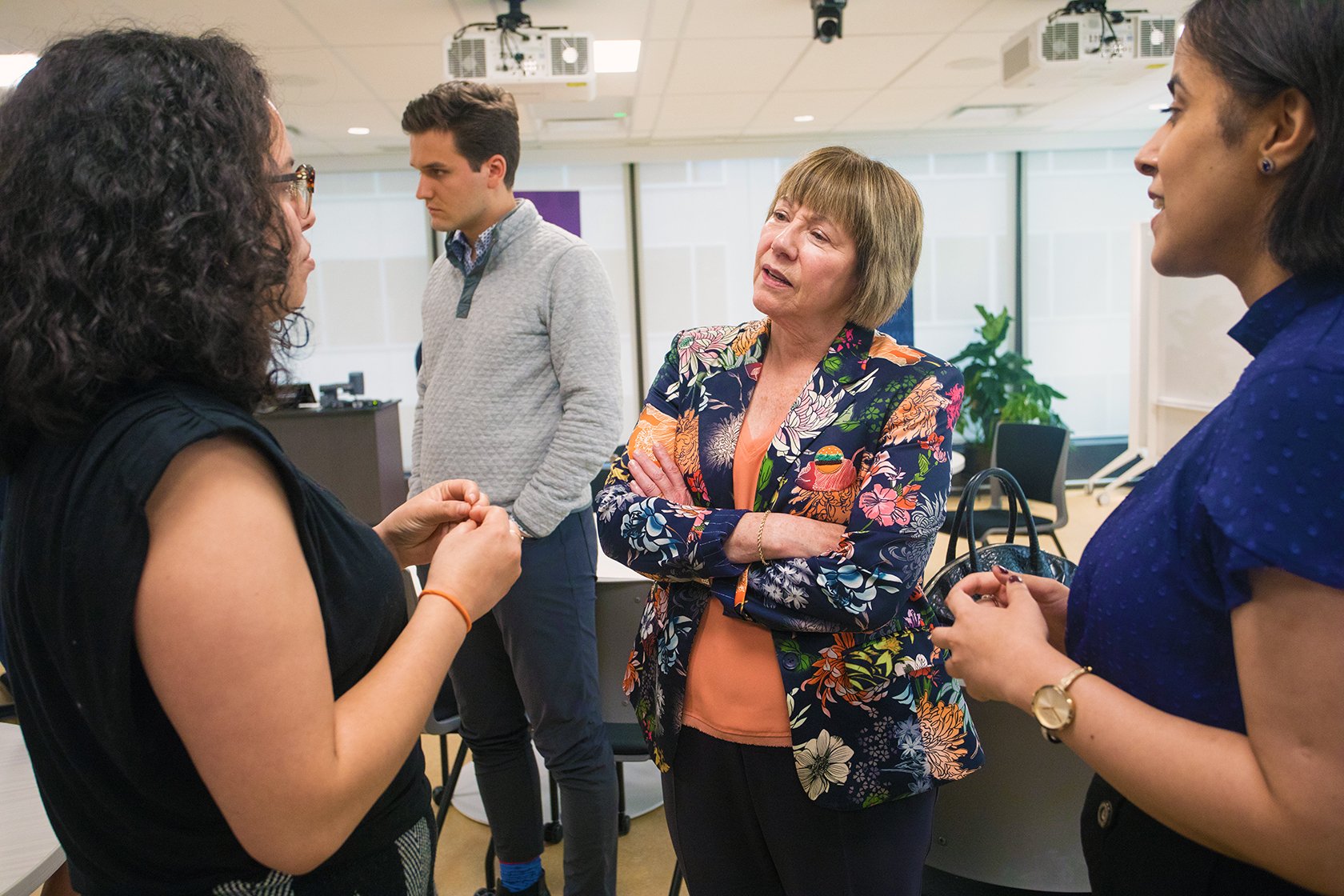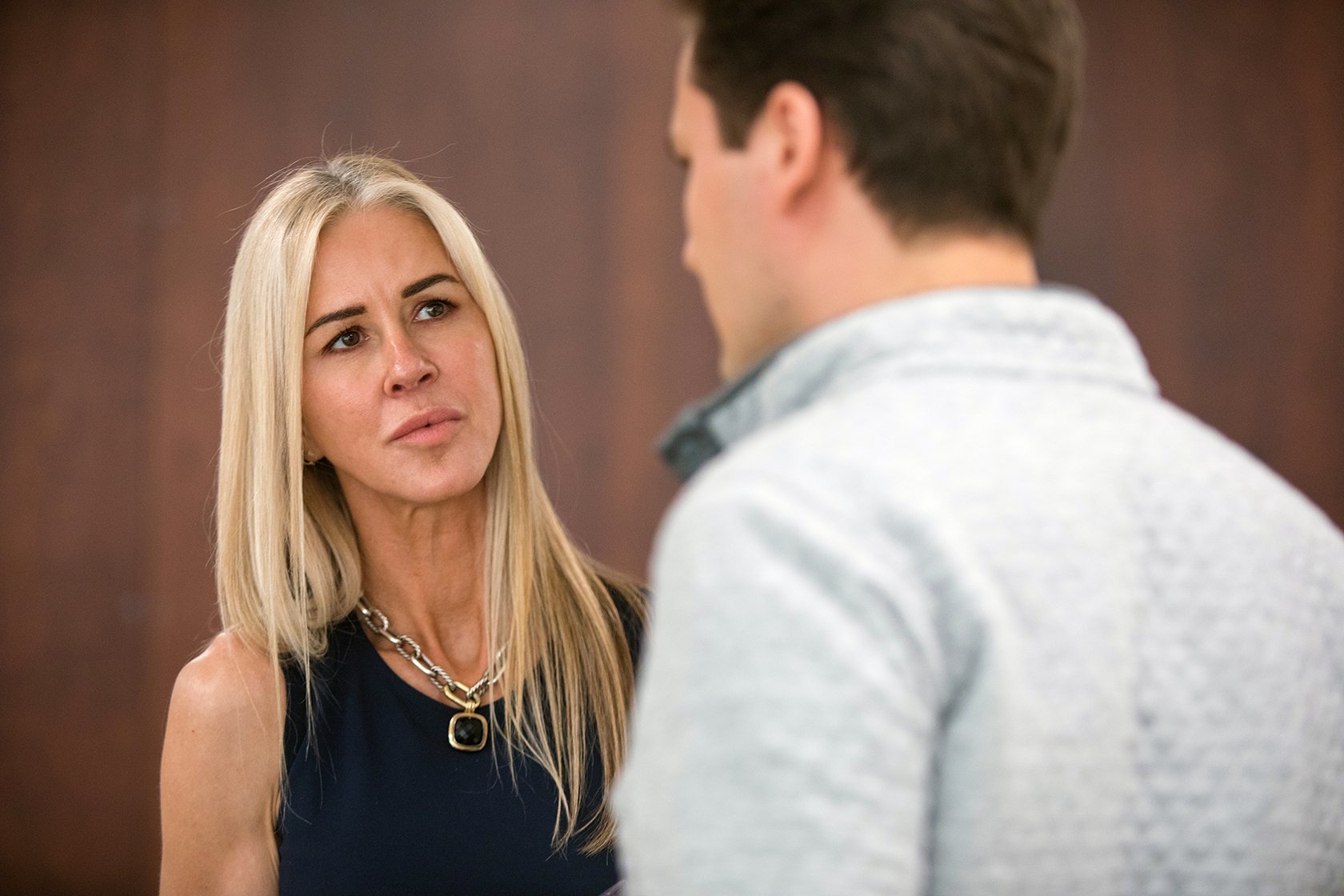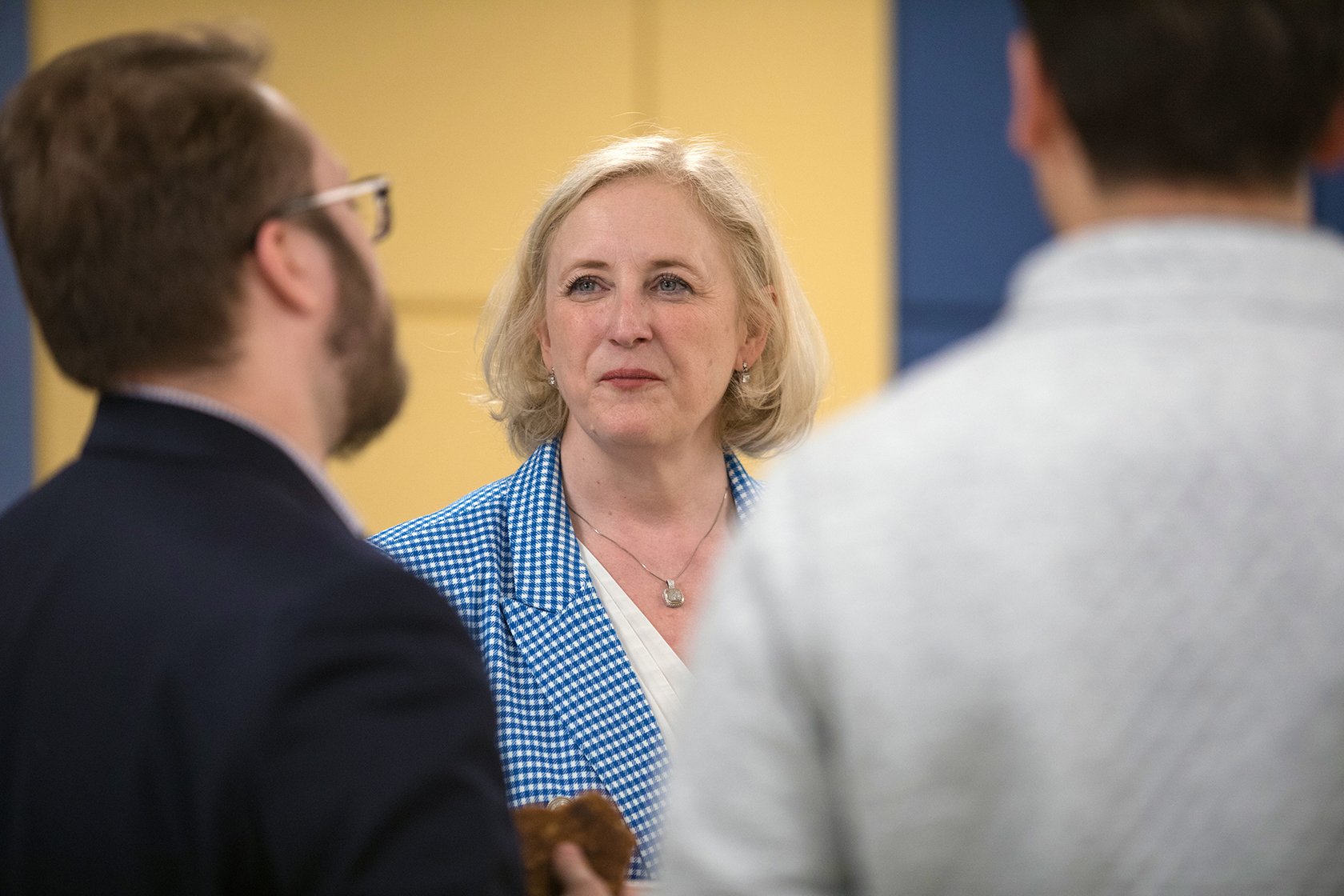Collaboration on better public policy key to inclusive, sustainable growth, say Coalition co-chairs
More collaboration between governments, industry, and civil society is needed to create public policy that promotes inclusive and sustainable economic growth, say Coalition for a Better Future co-chairs Anne McLellan and Lisa Raitt.
“I think governments are not good at always working at different levels together,” McLellan said during a Coalition Campus Tour to students from the Max Bell School of Public Policy at McGill University.
She said that while federal governments put money on the table for programs, achieving the desired outcomes is a different story.
“What we need to do is make sure that we have the collaborations and the coordination to get the outcomes we want, which is really to move the yardsticks in terms of creating a more inclusive economy and society for everybody.”
McLellan was joined in conversation by co-chair Raitt and Susannah Pierce, Shell Canada President and Country Chair, Vice President Emerging Energy Solutions, and student moderator Harshini Ramesh.
The Coalition’s Campus Tour, supported by Shell Canada, brings the co-chairs to universities, colleges, and training centres across Canada to speak with the leaders of tomorrow.
Pierce echoed that collaboration is critical, especially when it comes to big infrastructure projects and getting community buy-in. Citing her experience with a project in British Columbia, Pierce highlighted how trust was established with the local First Nations community by working with them from the beginning.
“We started the conversation very early on. What was in their interests? And to be frank, it wasn't a great warm welcome when we came in,” she said, explaining that the First Nations’ previous experiences with industry were not positive because promises made were not kept. “For us, it was rebuilding that trust. And that trust doesn't get built overnight. It takes a long time”.
Over time, she said, the trust was built by collaborating with the First Nations through all aspects of the project, from using traditional knowledge, measuring impacts through the environmental permitting process and recognizing the local community’s workforce and economic aspirations. Pierce said because of this inclusive process, there were “no challenges whatsoever of the existing nations on these traditional territories.”
“It starts first with a corporation's willingness to go to places of inclusion of the communities in which they hope to build and operate,” she said. “And I won't speak on behalf of many of the chiefs that I know and have become friends [with], but this for them, in their words, is having a share in the same. A share of the pie of the economic development, and a say in how it happens.”
Pierce also emphasized the need and importance of young people to be part of policy discussions that will affect them. “You need to become involved in this. Because growing the pie sustainably in an inclusive fashion – that allows for prosperity to grow, to give you more options,” she said.
Raitt agreed, saying there must be better policy levers and engaged youth.
“Economic growth is not your grandfather's economic growth. It is completely different these days. We need better public policy around it. We need better tools. And we need [...] to be engaged in government elections because they're the ones that are making the decisions,” Raitt said. “And I'm not pitching for one government over another by any means. But your decision makers are setting out what economic growth is going to be looking like for the next 20 years, because of the decisions that they're taking right now in public policy. And I think it's an incredibly exciting time to be involved.”
Canadians, businesses need to be incentivized to reduce emissions
Growing a sustainable economy requires carrots and sticks, Pierce said, when asked how the oil and gas sector can contribute to the reduction of greenhouse gas emissions.
Pierce noted that while Shell has installed a hydrogen pump in Vancouver, the lack of demand for hydrogen cars has made it difficult to justify investing in the technology.
“I can produce low carbon hydrogen … but nobody, no customers are buying it. Why would I actually invest in the technology, remove that diesel pump that could actually be generating revenue? The point I'm trying to make is producing lower carbon energy requires we have customers who are willing to pay for it and invest in the technology to consume it,” she said.
“There's a full value chain. When we think about the transition, we need to be paying attention to not just the oil and gas sector.”
Susannah Pierce, Shell Canada President and Country Chair, Vice President Emerging Energy Solutions
Electric vehicles, she added, are an example of good policy measures that incentivize action.
“EVs are growing rapidly. Why? Because there's incentives for the manufacturers to produce them, otherwise pay a penalty. They're coming down in cost. And you also get from your provincial governments some incentives to buy them,” she said. “There's a full value chain. When we think about the transition, we need to be paying attention to not just the oil and gas sector.”
She said Shell has a net zero target and is working towards it because it makes business sense. Pierce emphasized that oil and gas companies will reduce emissions as customers have access to lower carbon energy, with the help of ”good public policy, carrots and sticks, and fiscal incentives,” she said.
Pierce added that Canada is unique from a regulation perspective. “The policy signals from government, the clean fuel standards, and the carbon tax help companies know where they need to go. We need to accelerate that with a collaboration across the value chain and understanding how we work together to achieve it.”
Raitt said countries worldwide have chosen to move away from fossil fuels and decarbonize because it’s the right thing to do, but the transition must also be economically favourable.
“You can do both of those things at the same time,” she said, citing U.S. President Joe Biden’s State of the Union address in which he called out oil and gas producers for not producing more.
She said Canada’s oil and gas sector has the biggest challenge in reducing its emissions, followed by the transport sector. In the U.S., transportation is the top emitter. “The situation in each country will dictate the public policy response to going to net zero,” Raitt said. “In Canada, we focus on oil and gas because it's the biggest one. But just remember, there's a difference between emissions reduction and production caps, two very different things. Biden gets it, and Canada should as well.”
McLellan emphasized the need to increase the use of nuclear energy and rebuild the energy grid to include more renewable and non-emitting sources. She called for cooperation among all levels of government to ensure that the energy is transferred efficiently.
Economic growth not equal for all Canadians
Responding to a question about what policies have contributed to economic inequality, McLellan said economic growth generally hasn’t necessarily been equal in all parts of Canada. She noted that much of the country’s wealth comes from natural resources found in rural centres – forestry, oil, gas, water, hydro, critical minerals, etc. – but the wealth has been transferred to urban areas.
“Interestingly, rural and small-town Canada has not benefited from the fact that most of those resources actually are situated where they are. But the wealth has actually largely been transferred to big urban centres,” she said. “We know about the depopulation of small towns in Saskatchewan, Alberta, Manitoba, Nova Scotia, all over this country. I mean, small villages are disappearing.”
She said because of the lack of economic opportunity, rural Canada is not growing like urban areas. “I don't think we've really thought about what that means in terms of public policy tools and instruments,” she said.
McLellan said she thinks public policy is at the start of redistributing wealth. Pointing to collaboration with Indigenous communities as an example, she said when she was the Minister of Natural Resources, it was a big deal to offer a benefits agreement with “a little bit of training and a few jobs,” but now the impacted communities are at the table from the beginning.
“That is a redistribution of wealth to parts of rural and remote Canada,” she said. “And none of us know what that actually will look like 30 years from now, but it's starting.”
Pierce added that there weren’t policies to advance diversity, equity and inclusion, which added to the unequal growth for all parts of society.
“Social society changed,” she said, noting women, Indigenous communities, LGTBQS2+ people demanded to be at the table. ”When those conversations happened, they were just as painful. Then you started to see [society] say, ‘Well, here's where these gaps are, and that's when [people] started to say, ‘Well, let's see what we can do to close it.’”
Referring back to carrots and sticks, Pierce said the Strategic Innovation Fund requires companies to ensure there is a local economic impact. “To get government funds, I have to demonstrate where I am from a diversity and inclusion perspective and those sorts of requirements,” she said, “pushing the agenda even further.”
Measuring progress helps to move yardstick
Panellists at the Campus Tour said measuring progress is essential to help move public policy. That’s why the Coalition’s Scorecard is keeping track of 21 economic growth indicators. McLellan said it’s integral for all Canadians, civil society and businesses to “figure out how, by 2030, we have the most inclusive, most sustainable, competitive economy in the world.” She said without aspirational targets and a plan, complacency sets in – to the detriment of our country.
“Canadians are good at complacency. But maybe we're not so good at being ambitious,” she said. “We need a plan for economic growth. We have to execute and take that word to heart: execute.”
Pierce said when she learned of the Coalition’s work, she thought it was fantastic and wanted to get involved. “Because the Coalition is focused on those things which I think each one of you, as a good citizen in society, needs to care about,” she told the students.
“For successful enterprise and economic development, we really do need to make sure we're keeping our eye on the ball and good public policy. How competitive is Canada? And is growth actually being inclusive, are we actually becoming a more prosperous society? We've got to ask ourselves this question.”
Raitt agreed. “We're agnostic on the public policy levers to get to economic growth. It's not enough just to study, you’ve got to measure,” she said. “The purpose is to measure where we are as a country when it comes to economic growth. But the economic growth can't just be same old, same old. It's got to be inclusive, and it's got to be sustainable.”
Photos from the Campus Tour
